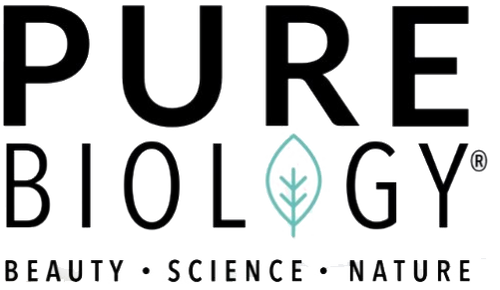We all know that the cleansers and creams we use are super important in maintaining beautiful skin (especially as we age), but other factors have a big impact on the appearance of our skin as well. What we put into your body and how much sleep we get, for example, can make the difference between skin that is glowing and luminous or tired and dull. Taking care of your skin doesn’t need to be complicated, you can get great results by being consistent and following a few good practices. We’ve put together 5 simple and effective ways for you to get glowing skin, so go ahead and try one or all of them. Your skin will thank you for it!
5. Intermittent Fasting

It turns out fasting may have a significant effect on your skin. Short periods of fasting can actually improve skin health. Intermittent fasting involves fasting for 8 hours a night (while you are sleeping) and 2-3 hours on either side of that, for a total of 12-14 hours a day. This can not only help regulate your metabolism and boost your energy but can also help your skin to repair itself. The reason for this may be that fasting increases autophagy, which is the process your body uses to recycle cells. Autophagy may give you a firmer, more hydrated complexion, but it’s also linked to many other health benefits including reduced risk of diabetes and heart disease.
4. Beauty Sleep

For skin that glows, you should get an ample amount of shut-eye. Sleep gives your body (and your skin) time to heal and recharge. While sleeping, your stress hormones (like cortisol) drastically decrease to make way for elevated levels of growth hormones. This creates the perfect environment for cellular repair. Your pituitary gland produces the human growth hormone during the first 3 hours of sleep. This hormone is nature’s anti-aging remedy and is essential for repairing daily skin damage. In the middle of your sleep cycle, your body increases melatonin production. Melatonin is a hormone responsible for regulating sleep/wake patterns, but it also acts as an antioxidant, protecting your skin from free-radical damage. During sleep, your skin’s temperature also decreases, allowing your facial muscles to relax fully, and giving your skin the opportunity for deep recovery. When you’re sleep deprived, your cortisol levels increase, which can trigger inflammation. Inflammation can, in turn, break down your skin proteins and leave your skin looking dull and blotchy.
3. Get loads of antioxidants

Free radicals are both beneficial and harmful to your body. They work to neutralize viruses and bacteria, but too much affects our DNA, lipids, and proteins. Free radicals are unstable, highly reactive molecules that have one or more unpaired electrons that attack stable molecules to gain stability. When we have an abundance of free radicals in our body, it causes oxidative stress which can trigger a more serious disease. Loading up on antioxidant-rich foods can help give you a naturally radiant complexion. Getting lots of berries and veggies can go a long way in maintaining a youthful glow. Green tea is a great way to load up on antioxidants that not only repair the damage caused by skin-damaging free radicals but also defend your skin from UV rays, pollution, and stress, plus it can also be applied topically to combat skin damage from environmental factors UV rays, pollution, smoke, and other toxic chemicals.
2. Sunscreen, sunscreen, and more sunscreen!

We all know sunscreen is important, but you might not be using enough! Don’t skimp on application when it comes to sunscreen. UV rays and environmental pollution are significant factors in skin damage, so use a high SPF (100 to be safe), and layer it on, applying a dime-sized amount to your face and neck, waiting for it to absorb, and applying it a second and third time. Also, be thorough in your application making sure you apply it all the way to your hairline and the backs of your hands (especially if you are driving in the sun).
1. Limit your sugar intake

It’s not just an old wive’s tale, food can greatly affect the appearance and health of your skin, and some studies suggest that cutting back on sugar can be a big help in warding off early signs of aging. Unrefined sugar like fruit is fine, but processed sugar can have adverse effects on your complexion. Sugar causes premature skin aging because it’s inflammatory, and inflammation causes skin-hardening, wrinkles and lines, and blotchiness. A diet high in processed foods and simple sugars can cause your skin to look stressed and tired. In addition to increasing the outward signs of aging, sugar can also trigger skin conditions like acne, rosacea, and eczema.
